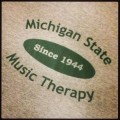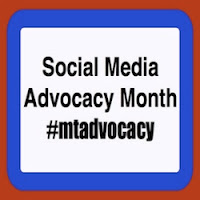In her guest post, Dr. Dena Register describes one of the three roles of music therapy advocacy as the “Directors.” She writes, “Directors are the ones who are able to see the big picture of possibilities that exist beyond the current situation.” I would consider my role in #MTAdvocacy as that of a director.
I clearly remember sitting at the 2012 AMTA national conference and seeing a slew of my colleagues receiving the “Changemaker Award for Music Therapy Advocacy,” as they had successfully spearheaded licensure legislation within their states. I remember turning to Bernadette – my music therapy partner-in-crime and task force co-chair – and saying we needed to get the licensure efforts started in Michigan. Over three years later, we have the wheels in motion, but we are still far from licensure legislation in Michigan.
One of the biggest and most important lessons that I have learned through the task force process is that advocacy is a marathon, not a sprint.
The first step in the task force process was to gather our team. We connected with a number of Michigan music therapists representing work within a variety of populations. We examined current Michigan legislation which may relate to our work as music therapists. Then we set out to gain a more complete picture of music therapy in Michigan by drafting and distributing a survey to the nearly 200 Michigan music therapists. We then assembled this information into a Fact Sheet on Michigan music therapy.
At this point, our progress encountered a big delay, as it became time for the 2014 elections. There was a lot of turnover in our state legislature and both the house and the senate assumed a Republican majority. This caused us to have to change our focus a bit and re-evaluate our best options for pursuing “advocacy champions” within the legislature.
In the spring of 2015, the Michigan task force held an advocacy training for Michigan music therapists and our first Hill Day on April 22, during Michigan Music Therapy Week. We had 9 music therapists in attendance and we met with 12 separate legislators and/or their staff. Unfortunately, I was not able to meet with my Representative, Tom Barrett, as he was tied up in committee hearings concerning the auto no-fault legislation.
Another lesson I’ve learned through this process is that there are a lot of factors which are outside of our control. At the time of our Hill Day, auto no-fault was a matter of priority. Now, our government is – understandably – focused on fixing the Flint water crisis. When those bigger issues arise, we really just have to sit back and wait for the right time to continue our journey. Through it all, we keep lacing up our shoes with our sights set on the finish line: state recognition of music therapy in Michigan.




